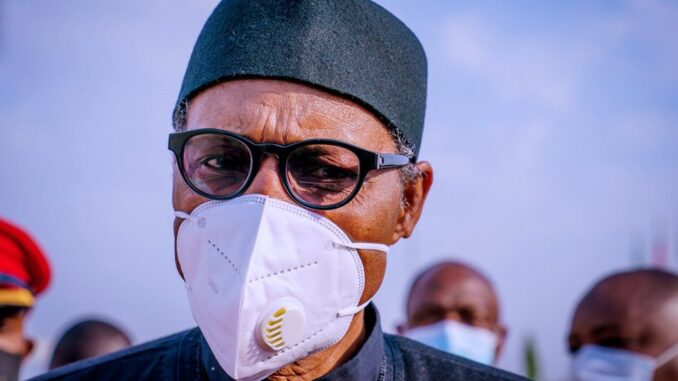
Gerontocracy, plutocracy, aristocracy, mobocracy, kakistocracy, kratocracy, and democracy are some of the types of government we have in our today’s world. However, democracy, or representative government, is said to be the best type of government. Now, almost every country on earth is practicing democracy. It is said that the most benevolent military regime is worse than the most repressive civilian or democratic government.
That is the chief reason why a military regime in a country is seen as an aberration, anachronism, and misnomer. And, most countries, which have military governments, have been given pariah status. They are ostracized; and, sanctions are imposed on them. Military leaders in countries with military governments do formulate and initiate political transition programmes to facilitate the transfer of power to politicians. Military governments ought to be stop-gap measures and corrective regimes that exist for the stabilization of troubled political polities.
In the past, before 1999, Nigeria had more than its fair share of military incursions into its politics. We still do remember that military-ruled Nigeria between 1967 and 1979; and, between 1983 and 1999 save for the brief period when Ernest Shonekan held sway as the national leader of Nigeria following the cancellation of the June 12, 1993, presidential election. Today, we’ve enjoyed twenty-two years of unbroken democratic governance with one political party handing over political power to another political party, seamlessly and peacefully. That should be considered a milestone in our chequered history and political annals gave the combustible nature of our ethnic composition: Nigeria is an amalgam of ethnic groups, which are antagonistic to one another.
However, it is said that Nigeria has not been led by its best politicians since the dawn of the fourth republic, although it has a pool of highly educated and tested politicians. It takes a political leader, who possesses probity, fealty, and leadership qualities to re-make a broken country. As our successive past presidents since the dawn of the fourth were our third eleven political leaders, they couldn’t lift Nigeria out of the abyss of economic and technological backwardness.
Not only did they fail to transform Nigeria into an economically prosperous and technologically advanced country; but also they deepened our ethnic and religious fault lines by their actions and inactions. Nigeria is now polarized; and, it stands precariously and dangerously at equidistance between war and peace. Now, anarchy reigns supreme in our dear country, Nigeria. And it is a known fact that an anarchical situation in a country is antithetical to national development. Anarchy and national development are diametrically opposed and mutually exclusive.
Today, Nigeria, which survived a gratuitous and fratricidal civil war, is on the path of civil war again given the happenings in the country. Since the inception of the fourth republic when the Boko Haram group came into existence in Nigeria, it has continued to kill people and abduct school children for ransom in furtherance of their theocratic agenda. Consequently, thousands of people, who are natives of the northeast, are displaced by the Boko Haram insurgency, causing them to give up their farming occupation.
Again, the Fulani jihadists, who are masquerading as cattle herders, have not relented on their genocidal decimation of Tiv populations in Nasarrawa and Benue States. They have sacked many Villages in the agrarian Benue State and occupied them. The Boko Haram insurgents and Fulani cattle herders’ campaigns of blood-letting in the north have affected the practice of agriculture in the north.
Because the federal government is sitting on its hands, the Boko Haram insurgency is festering, and the Fulani cattle herders’ menace is unending. Now, the north has become a killing field and flowing river of blood.
And, in Kaduna and Niger States, bandits roam freely there, killing people, and abducting students for ransom. Kidnapping students for ransom is now the business and enterprise, which the outlaws in the north, have embraced. Huge sums of money had been paid as ransom to the bandits.
More so, in the Southeast, the separatist IPOB’s protest marches had given way to the monster and menace of the unknown gunmen, following the unjust proscription of IPOB by the federal government of Nigeria. Now, in the entire Southeast of Nigeria, police officers whose duty is to maintain law and order and combat crimes in the country have gone into hiding for fear of being killed by unknown gunmen. The pastime of the unknown gunmen, who are seized with insatiable pyromania, is killing policemen and setting police stations and INEC offices ablaze. The number of polices stations and INEC offices burnt by the unknown gunmen has kept on increasing, geometrically with each passing day.
Against the background of the deserting of our roads by policemen, it is expected that the incidence of crimes will rise in the southeast. But that is not the case there. In Anambra, those caught in the act of armed robbery and those alleged to have taken part in armed robberies are apprehended and killed in instalments before they are set ablaze. The videos of people who were set alight by the irate mob are trending on the internet. Were they arraigned and tried in court, the punishment for their crimes would not have been a death sentence.
But burning suspected armed robbers alive without giving them a fair trial in court goes against the grain and course of justice and the provisions of our constitution. Our resort to jungle justice, especially burning people alive, is a reflection of our collective loss of humanity. And it is irrefutable proof that government is non-existent in the Lugardian enclave called Nigeria.
Our burning of people, who are alleged to have participated in the deed of armed robbery, is a classic exemplification of mob rule or mobocracy. Based on happenings in Nigeria now, aren’t we witnessing incipient ochlocracy here?
Okoye, a poet wrote from Uruowulu – Obosi
Anambra State.
(08062220654)
END

Be the first to comment